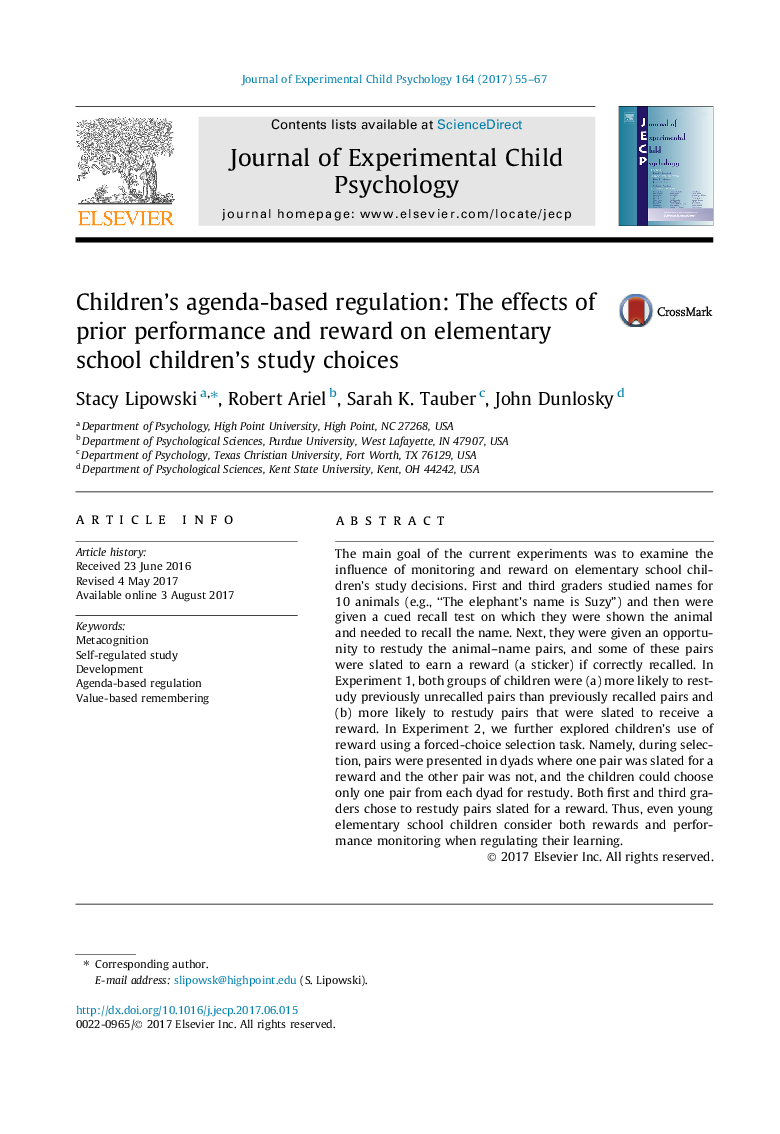| کد مقاله | کد نشریه | سال انتشار | مقاله انگلیسی | نسخه تمام متن |
|---|---|---|---|---|
| 5039945 | 1473448 | 2017 | 13 صفحه PDF | دانلود رایگان |
- Young children use reward to make decisions to regulate their study.
- Young children use their monitoring of learning to regulate their study.
- Children's selection of materials for restudy is goal oriented.
The main goal of the current experiments was to examine the influence of monitoring and reward on elementary school children's study decisions. First and third graders studied names for 10 animals (e.g., “The elephant's name is Suzy”) and then were given a cued recall test on which they were shown the animal and needed to recall the name. Next, they were given an opportunity to restudy the animal-name pairs, and some of these pairs were slated to earn a reward (a sticker) if correctly recalled. In Experiment 1, both groups of children were (a) more likely to restudy previously unrecalled pairs than previously recalled pairs and (b) more likely to restudy pairs that were slated to receive a reward. In Experiment 2, we further explored children's use of reward using a forced-choice selection task. Namely, during selection, pairs were presented in dyads where one pair was slated for a reward and the other pair was not, and the children could choose only one pair from each dyad for restudy. Both first and third graders chose to restudy pairs slated for a reward. Thus, even young elementary school children consider both rewards and performance monitoring when regulating their learning.
Journal: Journal of Experimental Child Psychology - Volume 164, December 2017, Pages 55-67
